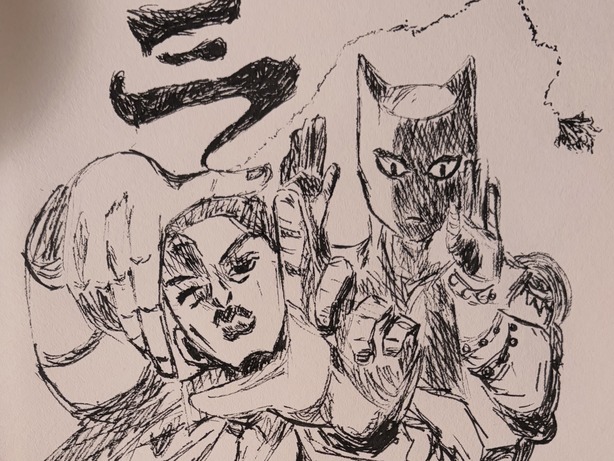The First Season
“There’ll be others. To the others, all of them.” — Peaky Blinders
Tommy Shelby
I watched the first few episodes of Peaky Blinders and my favorite character is definitely Aunt Polly. My main complaint is that they made Ada too stupid, but I guess it’s needed to move the plot forward in the favor of Inspector Campbell. For writing stories, I noticed it’s good to leave a few cards in your hand for future use. Tom is certainly an interesting character as well, because he does a lot of haphazard things which contradict his calculated nature, but underneath it is a real sense of humanity.
Actually, I just watched a scene where the insane thing he did turned out to be in his favor, so I guess it makes his actions rather unclear, whether he is completely rational and just acting hot-headed, or if there is a mix. There is a sense that he’s manipulating everyone around him though.
I’m not used to seeing real people act since I only watch anime, but all of the actors of complex characters are very good at facial details. I’m not sure if the actor makes the character so good or the reverse, but I think the script is also important.
Under the Influence
After immersing myself in the world of 1920s Birmingham, England, I find the thought of the action of smoking and drinking very normal. It’s interesting, because on a conscious level, I’m the same as I’ve always been, I don’t want to do either of those things. However, maybe I have accepted them on a subconscious level.
I do still hate the smell of smoke though whenever I smell it, so I don’t really understand what’s going on with my brain.
On the Origin of Ideas
Held beliefs can originate either externally or internally, personal experiences may form stronger biases, but ideas given by trusted (subconscious or conscious) sources, likely form a larger subset of values.
When making decisions and engaging with new or old ideas, it’s important to understand which beliefs originate from within and which were bought from others. By the way, individual decisions are limited by current conceptions of the present, so learning is good.
What really happened?
People want to know the exact truth. However, it’s impossible for the brain to store all information received; so, memory is a vivid yet loose reconstruction of compressed information. Of course, that memory is biased by other memories and beliefs, so a fraction of the actual truth remains. For instance, I sometimes forget whether I witnessed something or if someone else told me about something and then I hallucinated it.
However, this model breaks down because, with a few generous assumptions, a lot of the things people think and act on would be the result of random noise, which means the world is coming to an end soon. There are many safeguards against the loss of truth, such as confirmed truths, which serve as checkpoints, or the binary nature of most individual events.
For confirmed truths, it doesn’t matter if something is hallucinated or witnessed because it definitely happened. For example, if I’m not sure whether I imagined an event based on my trusted friend’s story, or if I was the witness, it doesn’t matter because I would still believe it happened. However, note that my decision to believe is based on my trust in my friend, something I value greatly. For people who do not trust others, they may be unsure of what really happened, because they would think, “What if my friend lied to me?”
Furthermore, for most decisions, there are only two relevant choices, and the step-by-step imagined probability of events throughout each day is an adequate approximation of the truth. It’s like how an electron will not teleport far from the nucleus within one second, so there is generally nothing wrong with assuming the electron will always be inside the atomic radius.
Consistency’s Consistence
While there may be no issues with small inconsistencies in beliefs across time, taken as a whole at one time, an individual’s values can seem contradictory.
Take the example of imposter syndrome at top universities: someone believes they are inferior to most of their classmates in some way and do not belong. However, that means they put a portion of their self-value into their achievements; simultaneously, they probably have a few achievements that only a small percentage of people could have. So, the solution seems to be to balance those ideas out after some thought.
That was just one example of how people hold contradictory beliefs. Crucially, these opposing beliefs are born or had out of necessity in the moment; it is sometimes more helpful to believe in a contradicting ideas than maintain consistency1.
Furthermore, contradiction is not necessarily bad; it just means that you need to pick your poison when the time comes and accept the consequences. For example, if you forgot to do your homework and you believe in both the importance of being truthful and getting good grades, you may either choose to apologize to your teacher and accept a late penalty, or lie about your dog eating your homework (feel free to use this excuse) and then hand it in later.
In this situation, truth and getting good grades are at odds, so something must be lost. Context is important: if it were a massive project, lying has more value. However, being a good person has different value at different times: if you were thinking about a liar you dislike, you may be inclined to be the opposite.
Regardless of how they come about, inconsistencies must be removed in the long term because they can cause a chain reaction breakdown of individual belief systems.
I was without
Accepting external ideas without proper reasoning is a common source of inconsistency. If you realize you got an idea from somewhere else, it’s easier to get rid of it.
For example, money and fame is highly valued by most people, but does that align with the rest of their beliefs or were those ideas sold to them by society? Many people also value privacy, and it is impossible to have both fame and privacy, so there is some moderate fraction of people who say they want to become famous who actually might not enjoy it. For those who value money, there is also some fraction that values leisure more highly, but it is very difficult to get rich without working extremely hard and giving up free time.

Ultimately, independent thinkers use their ideas to serve themselves rather than become slaves to dogma. The next time you make an important decision, consider your true motivations and act accordingly; don’t blindly follow anything or anyone without reason.
Footnotes
-
Doublethink. ↩






Leave a comment